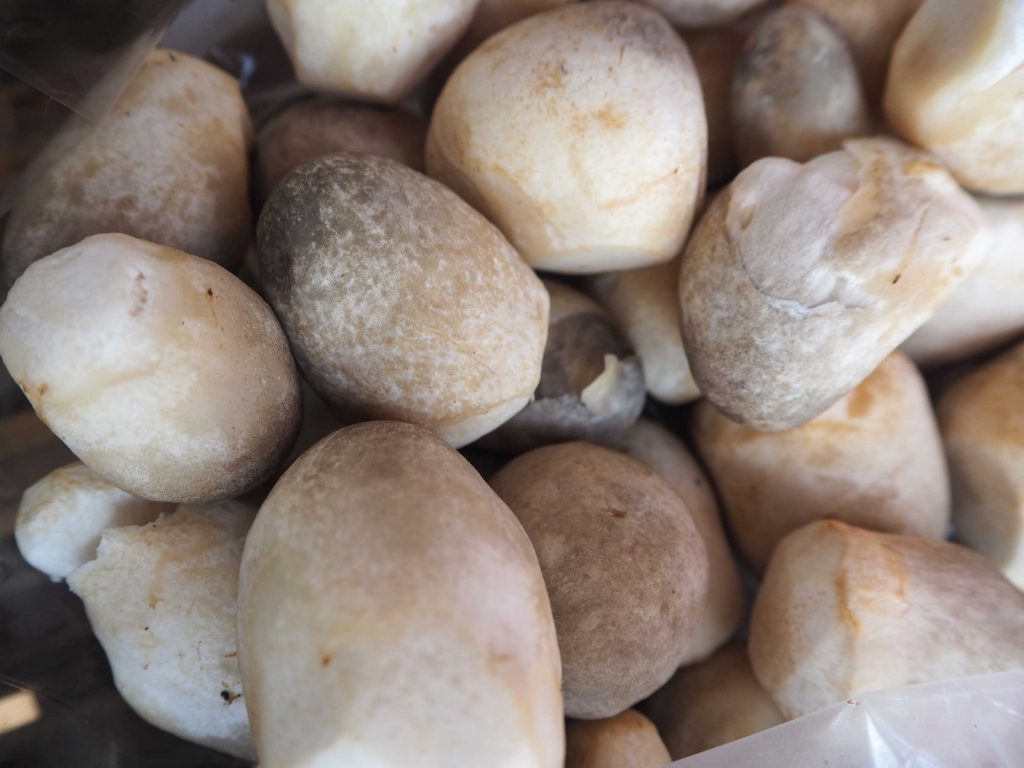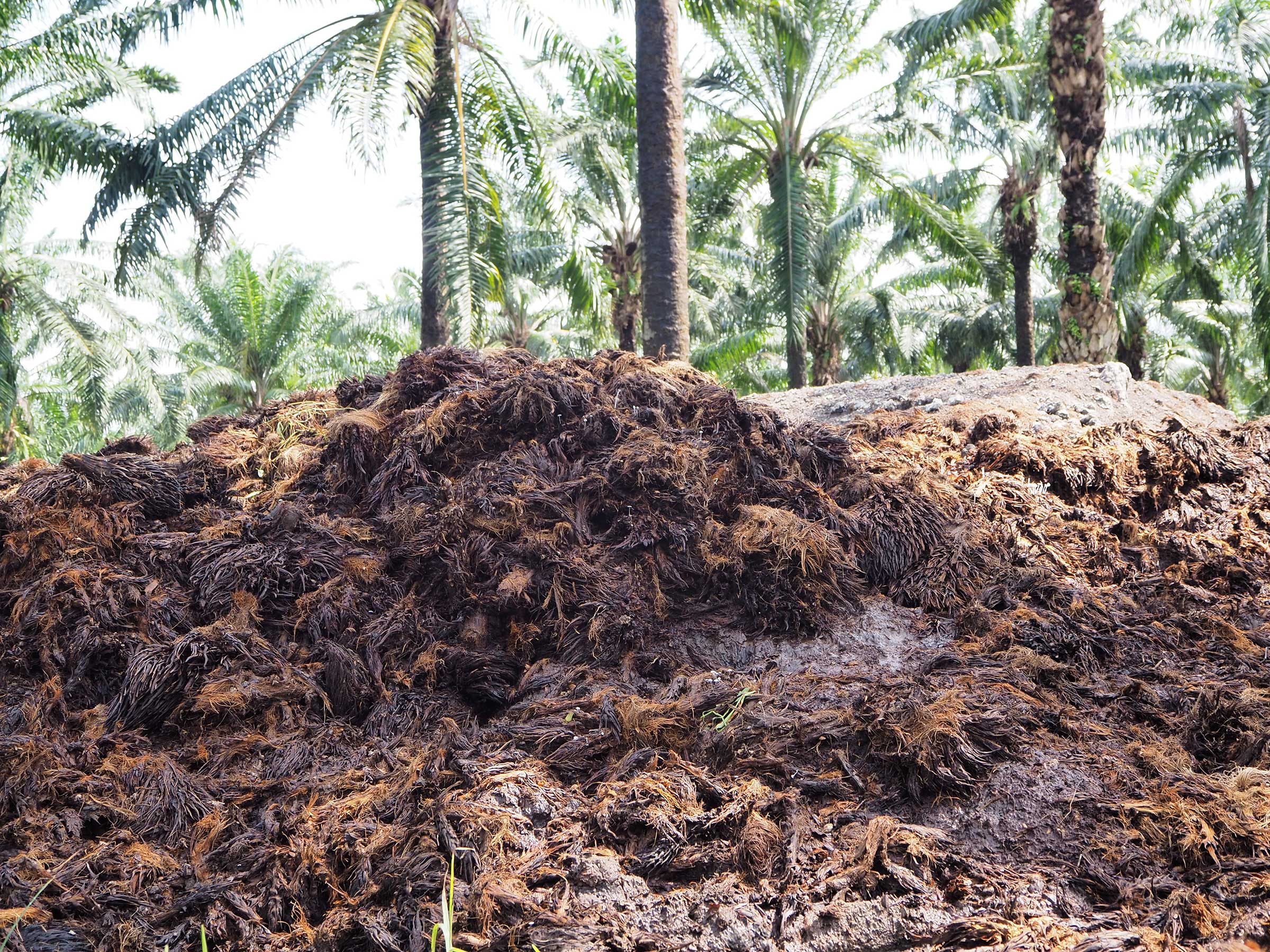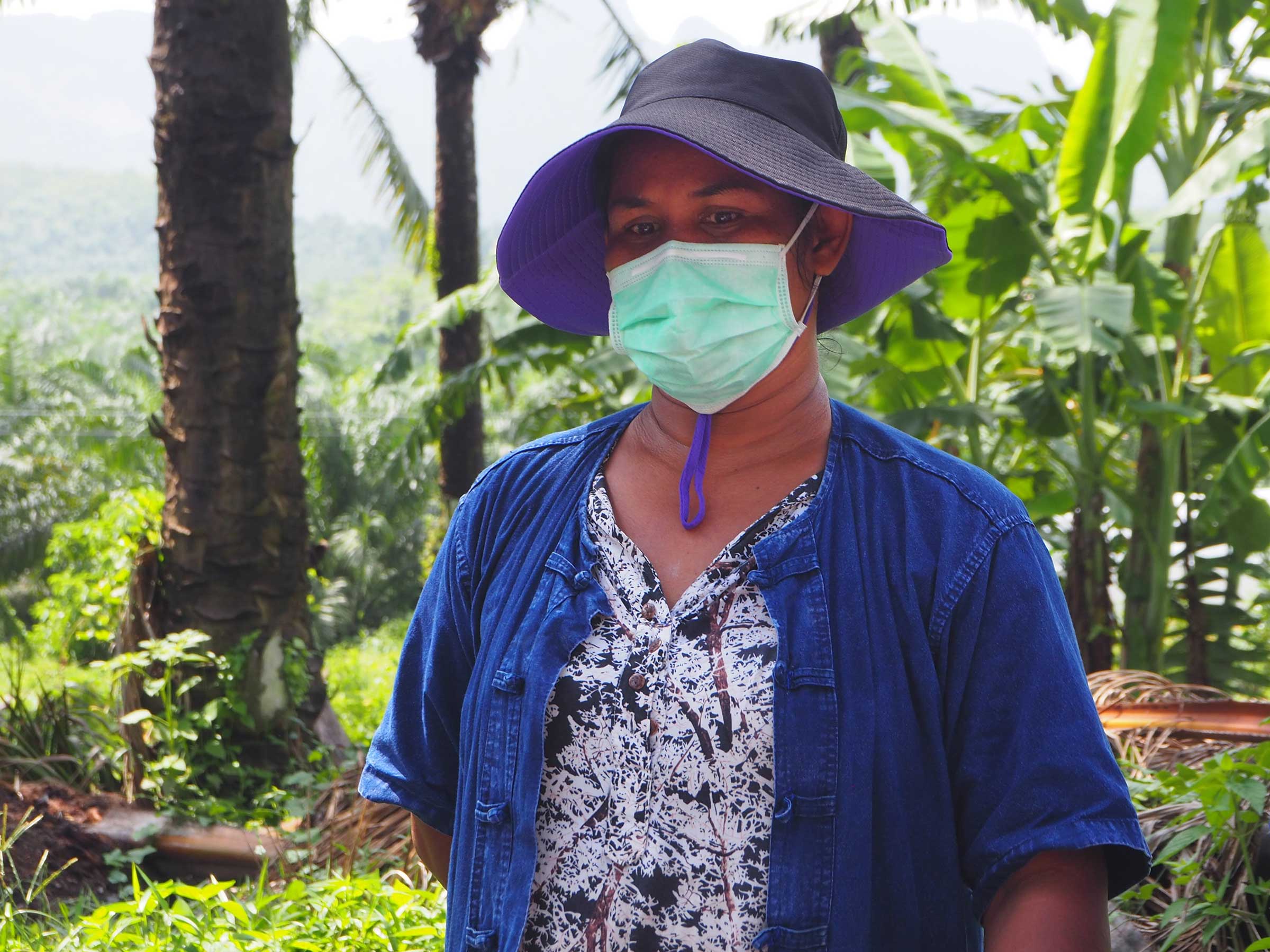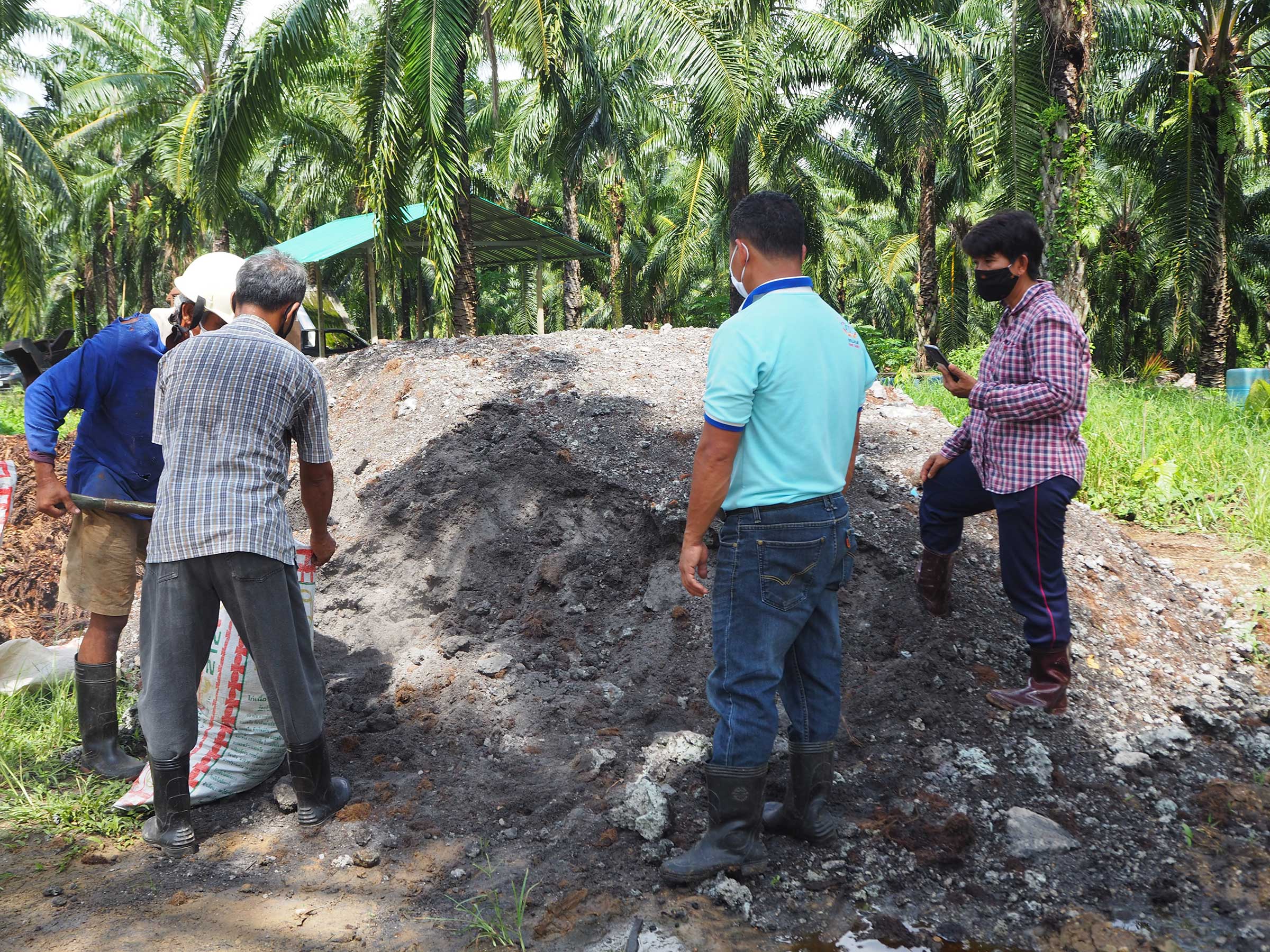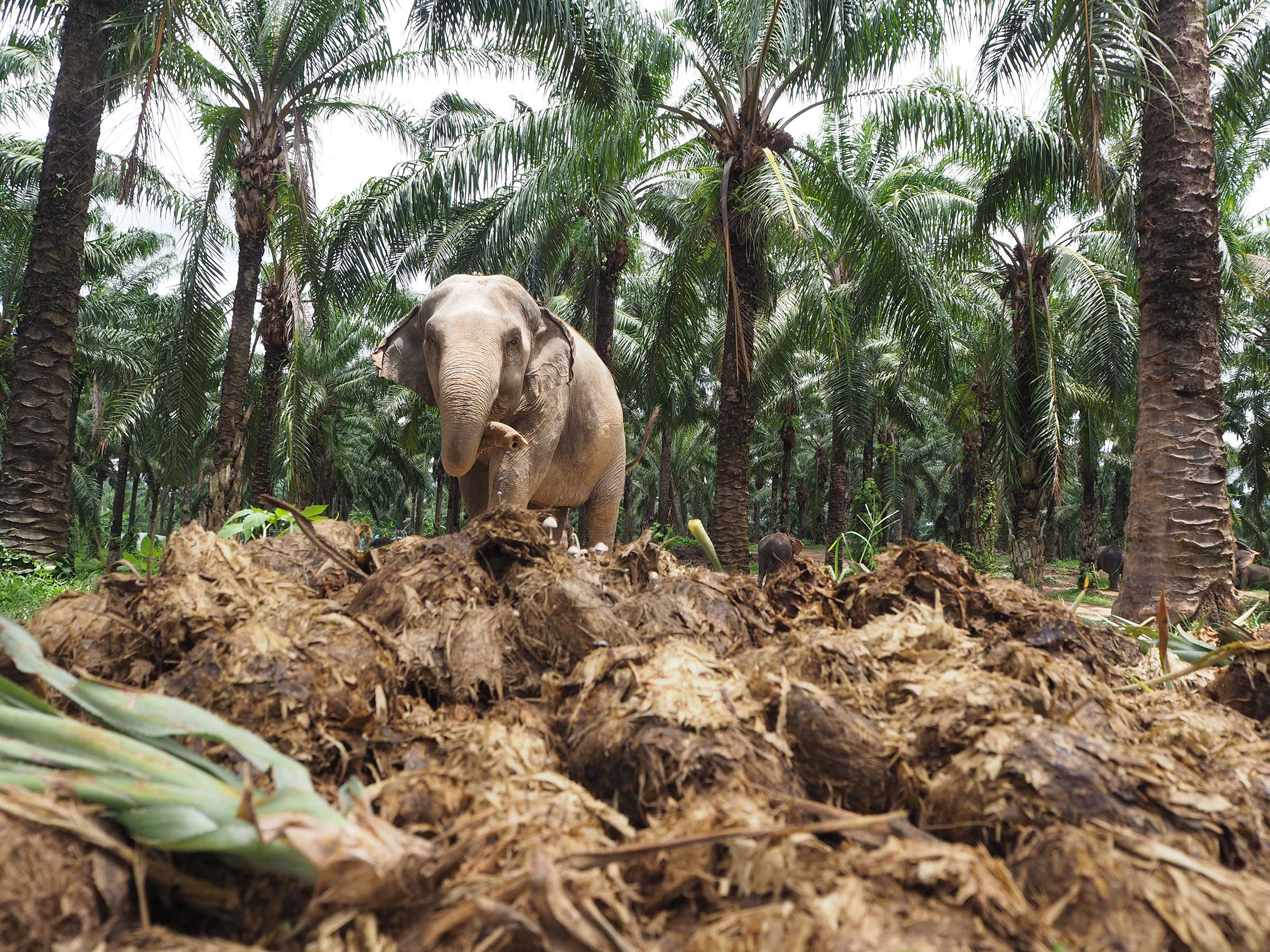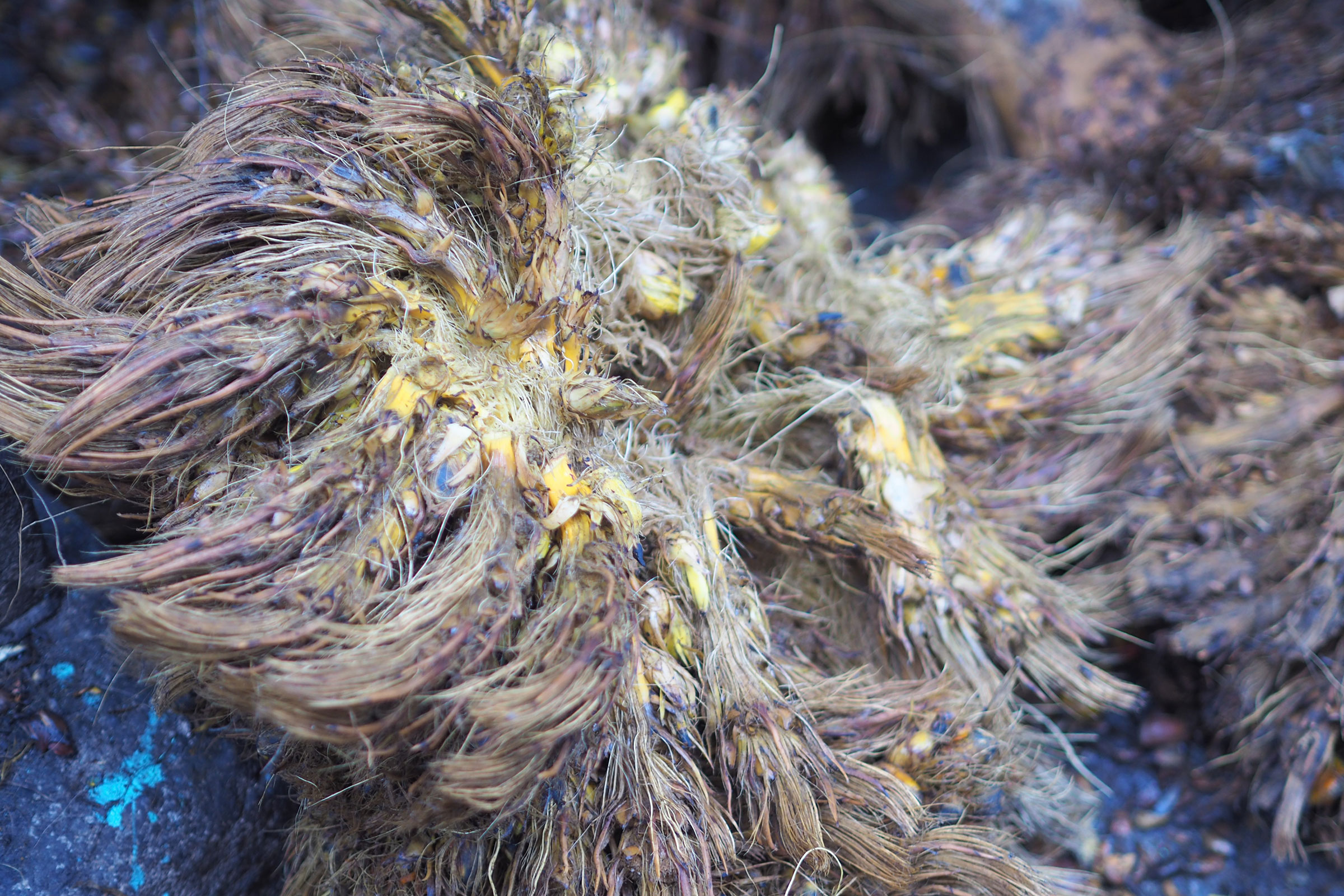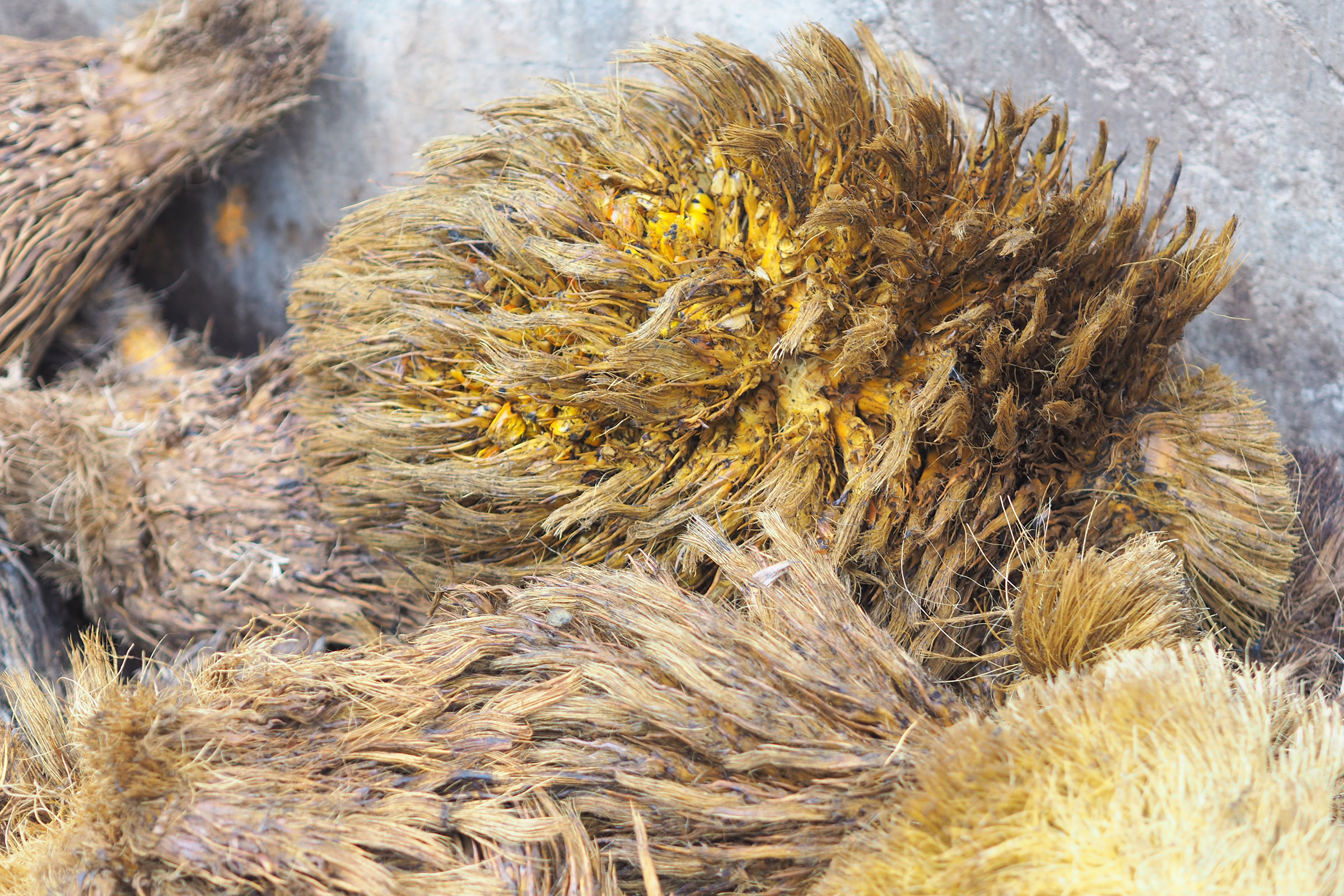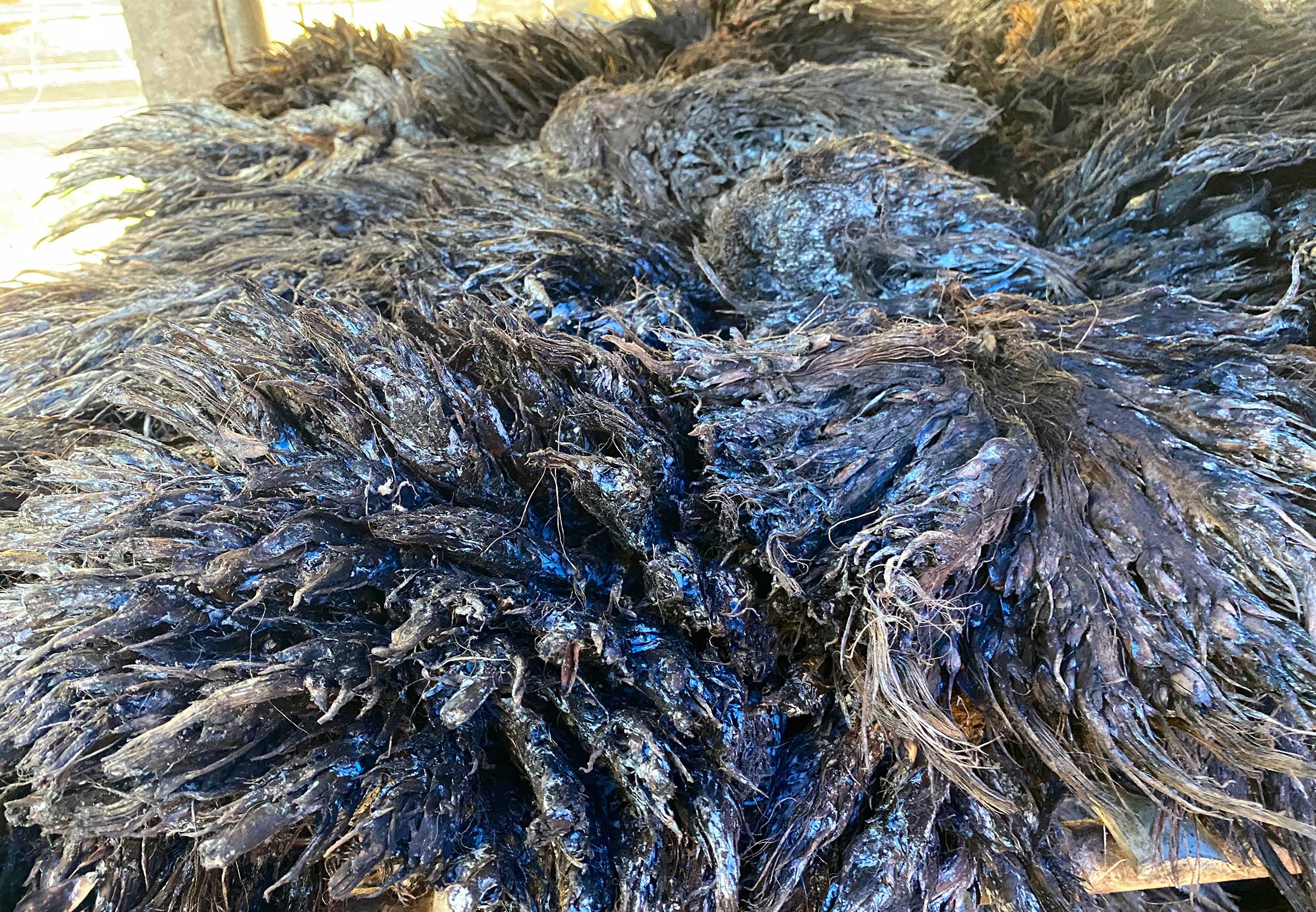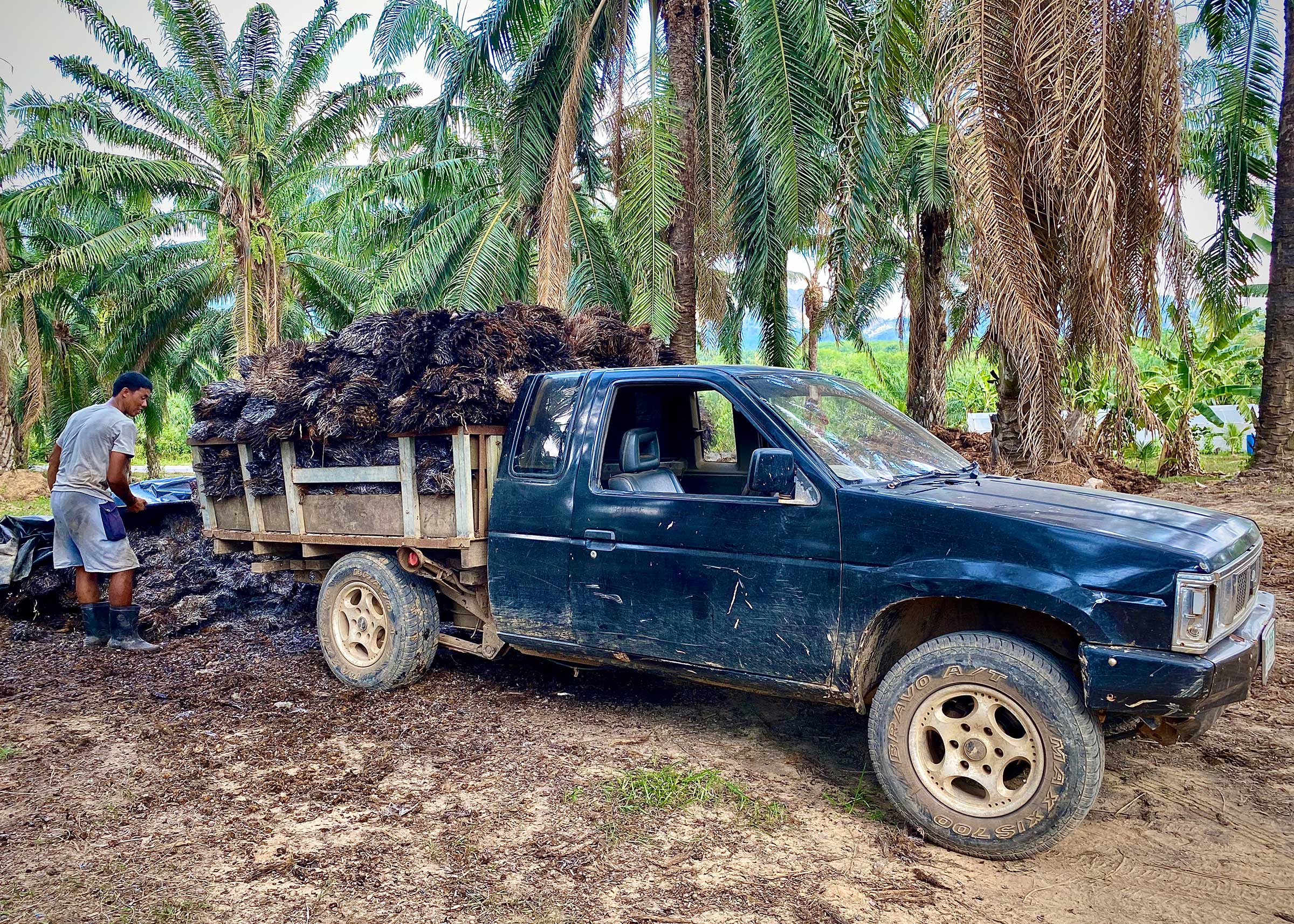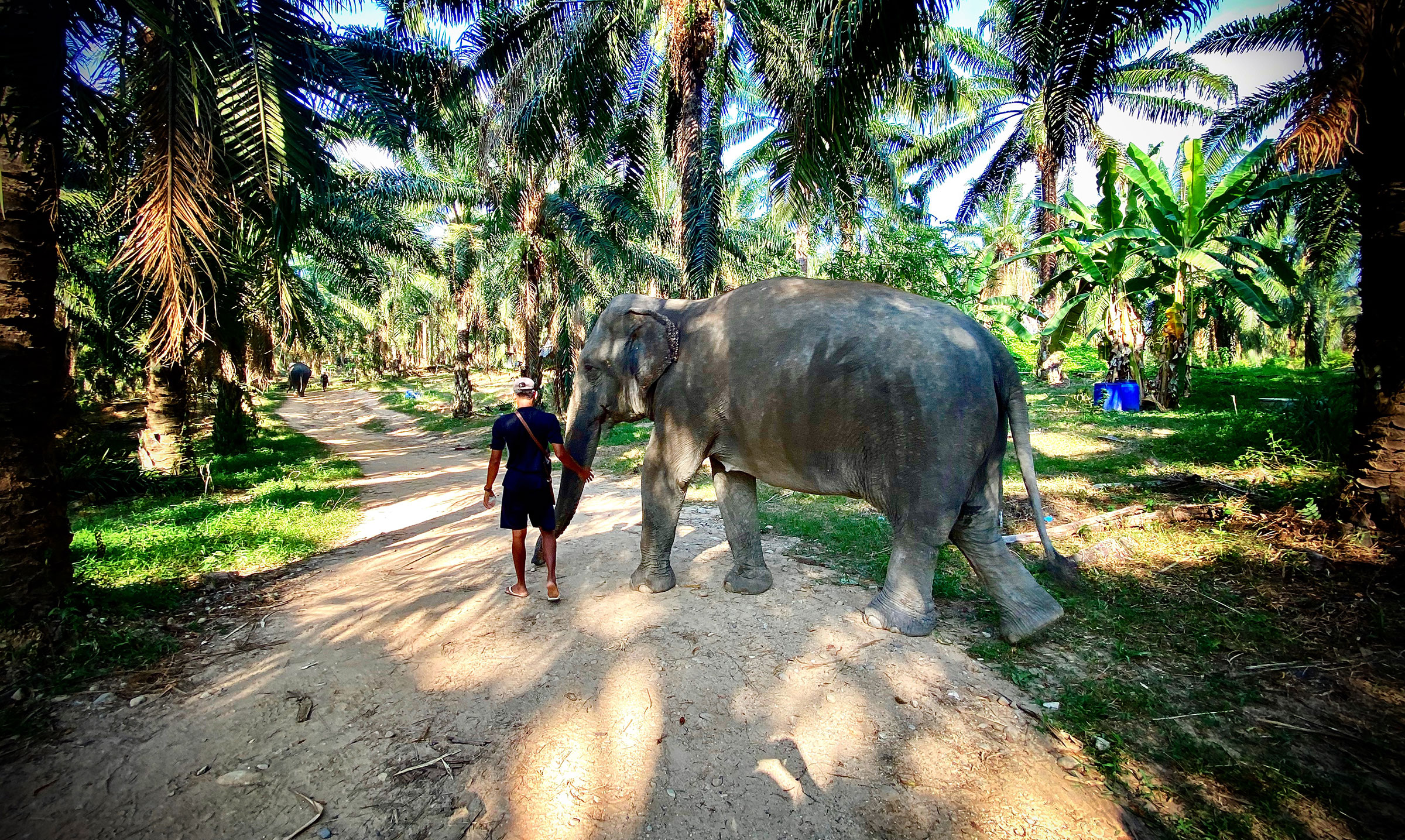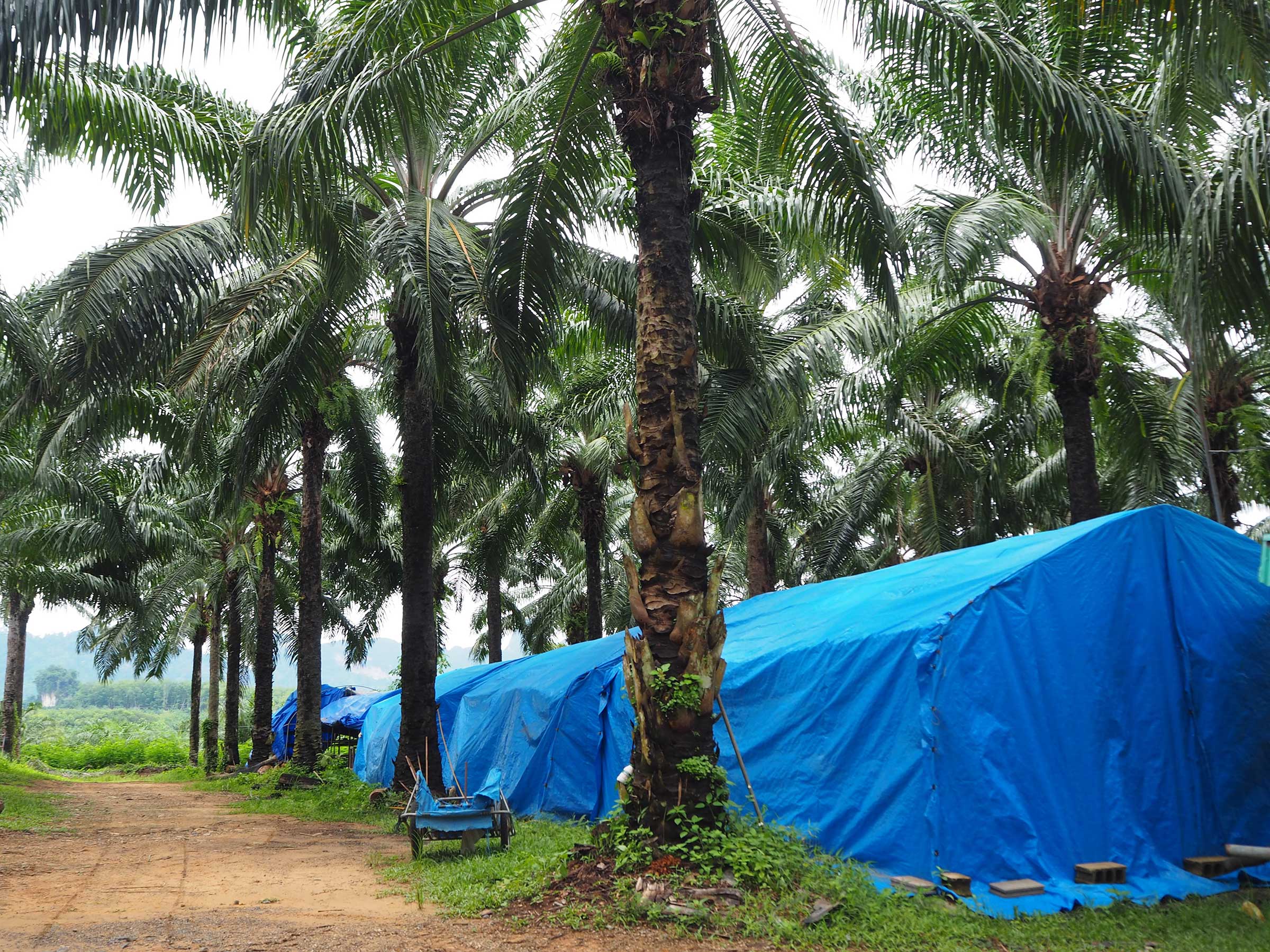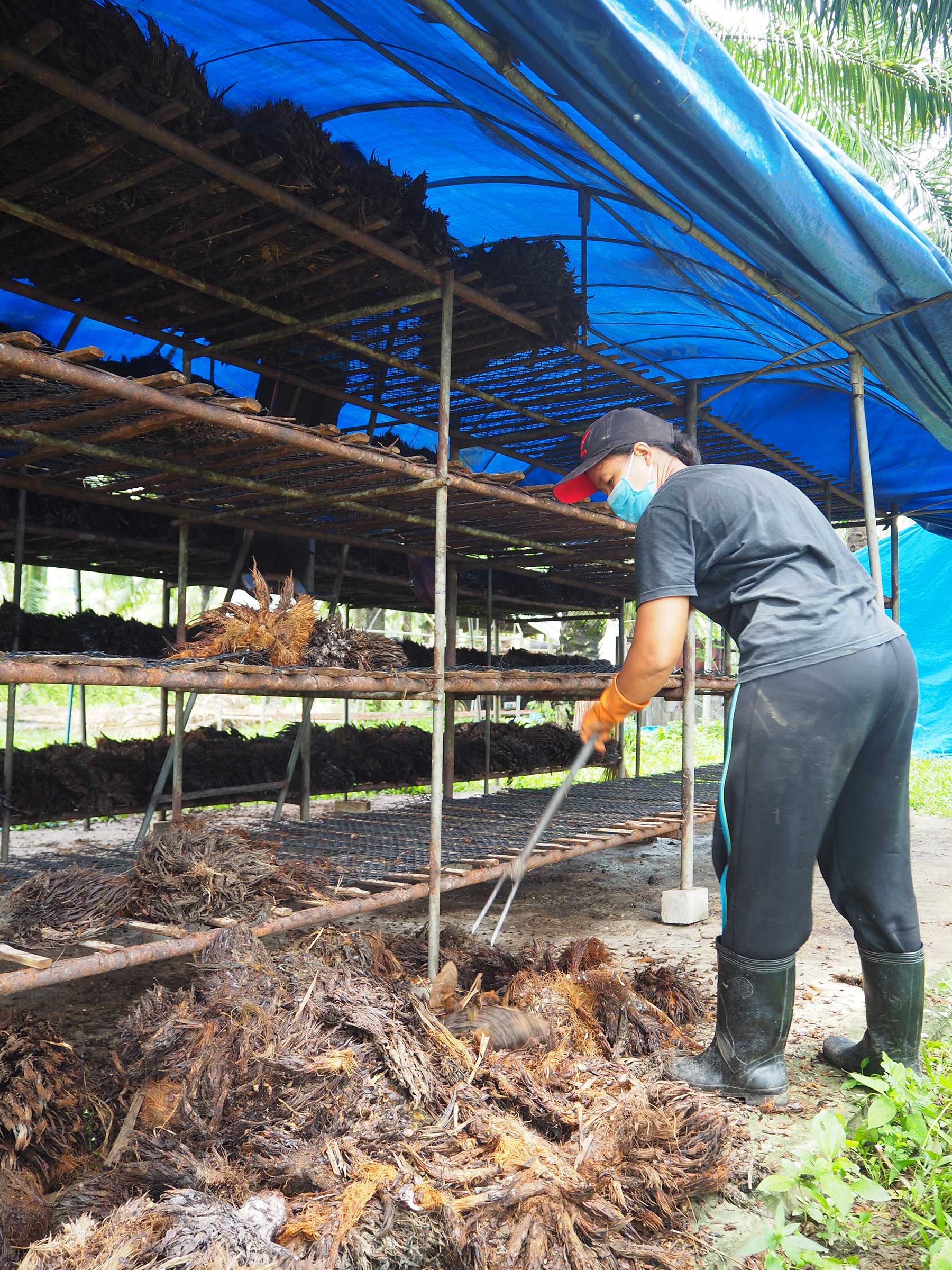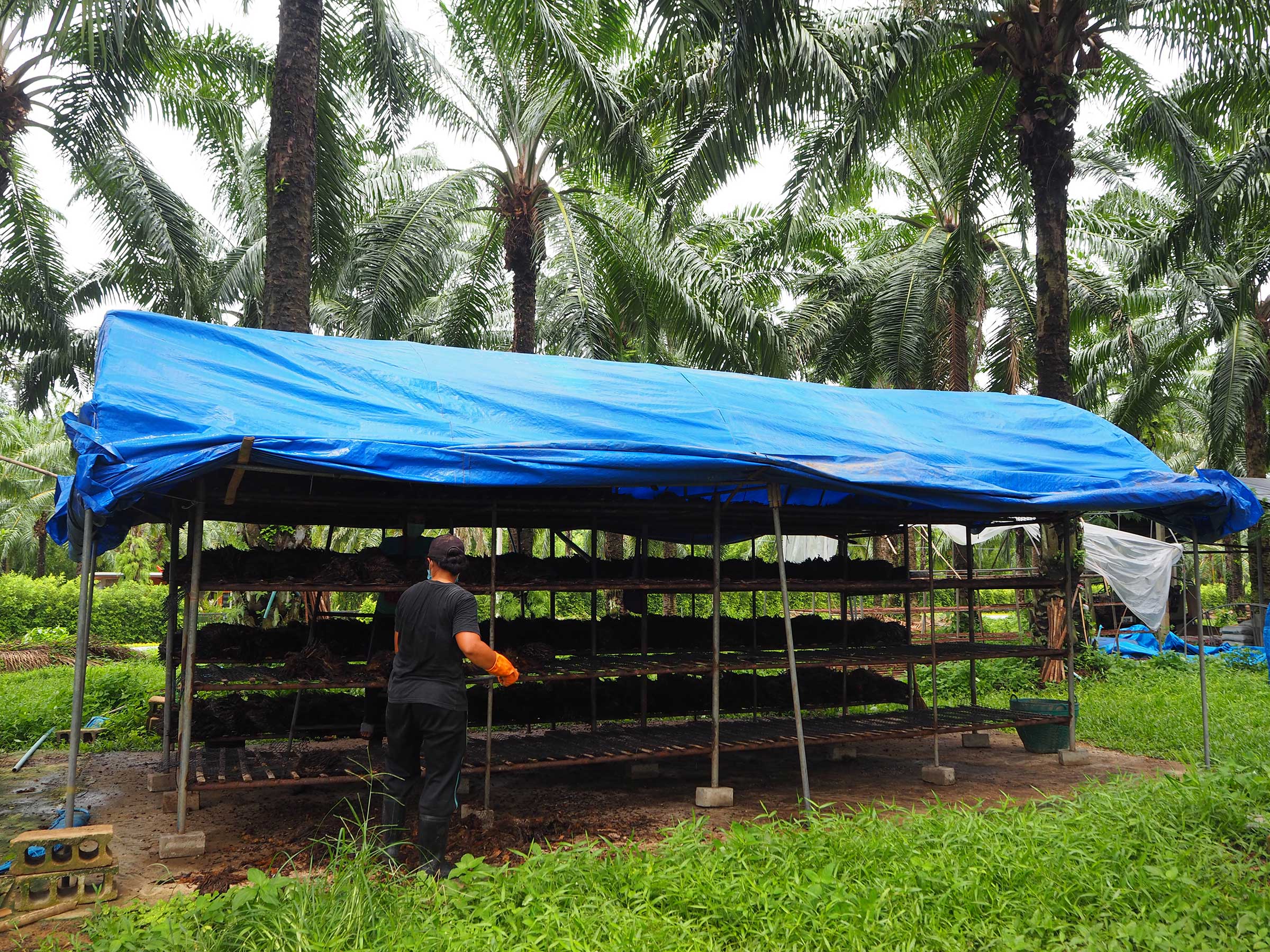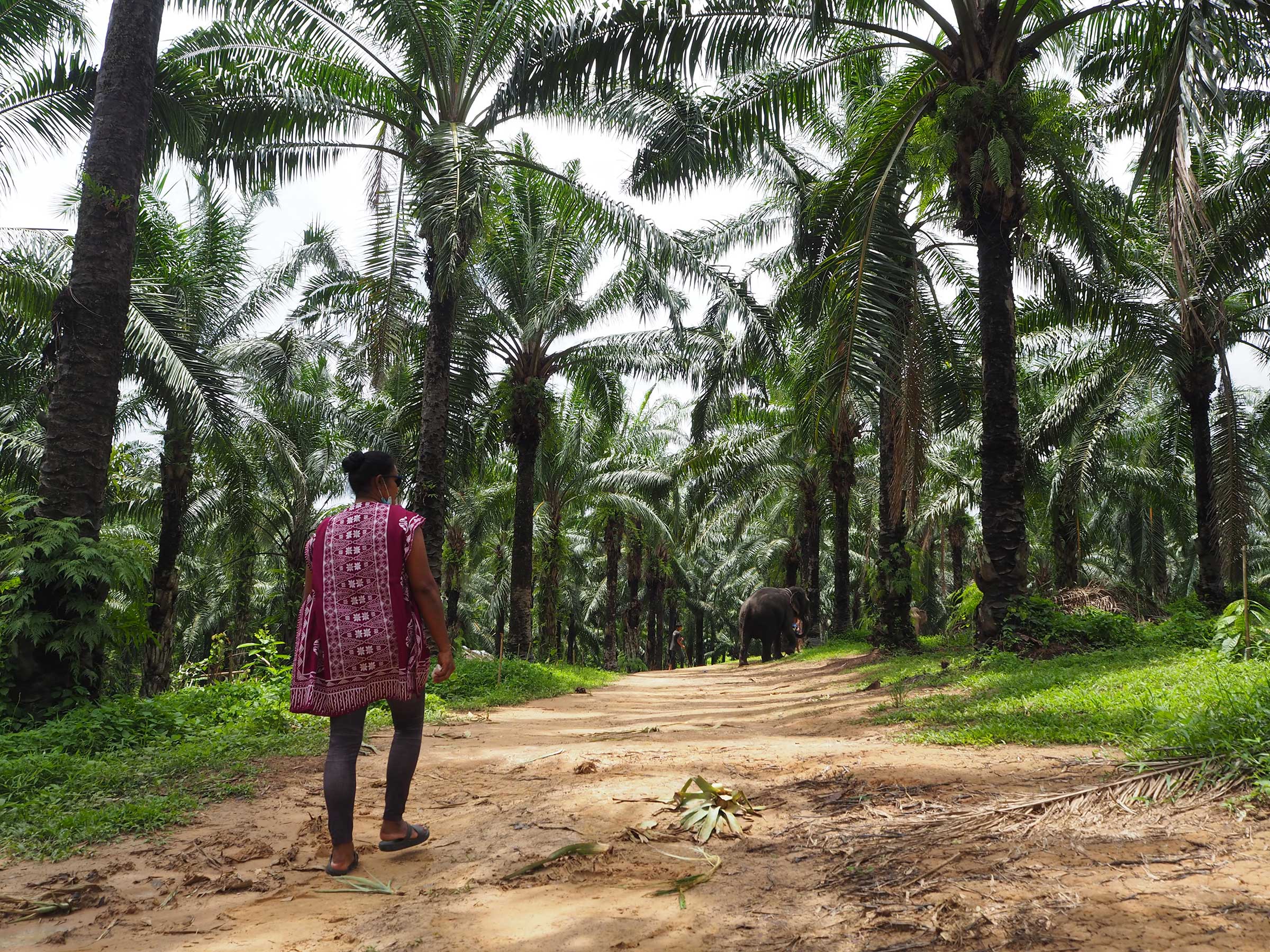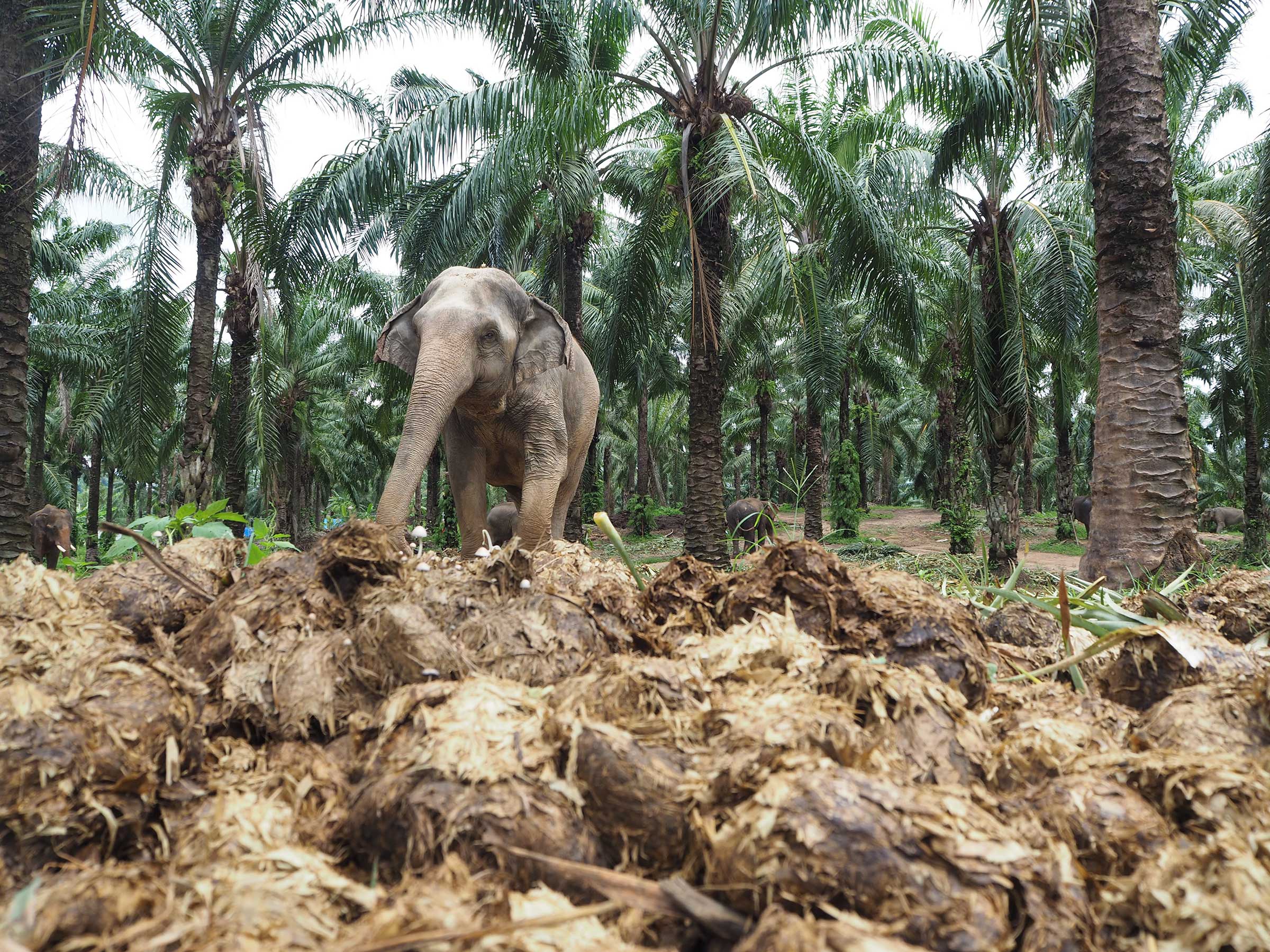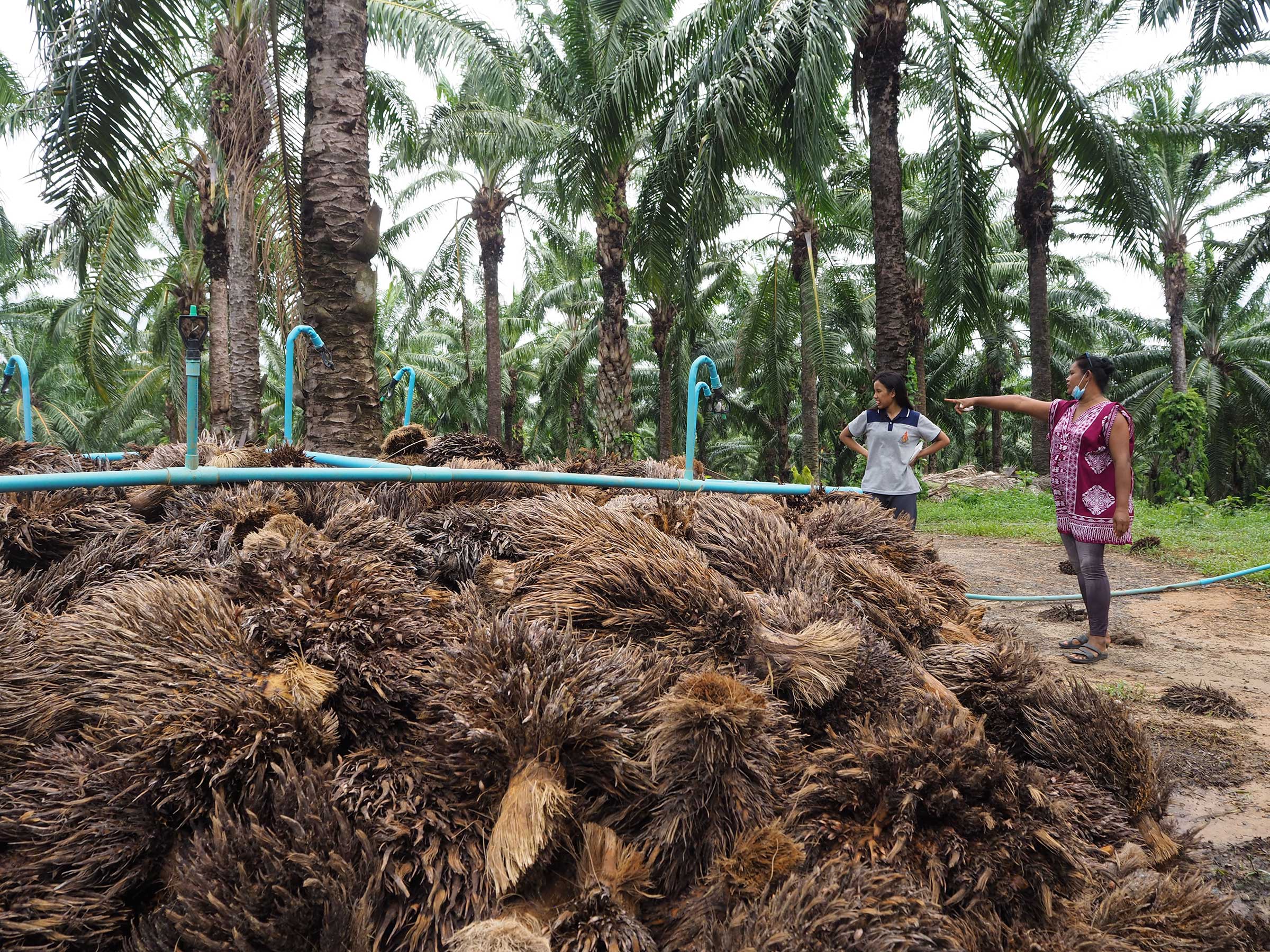Unstable palm oil prices on the global market and the increasing costs of oil palm plantations have affected local oil palm smallholders in southern Thailand. Rabiab Karnrew is one of many oil palm growers looking for opportunities to earn more a stable income from alternative agricultural practices.
Mrs Karnrew said profits and productivity from her oil palm plantation alone were inadequate to raise two children who are attending university. In 2010, the mother of two started experimenting with mushroom cultivation using empty fruit bunches, a by-product from a neighbouring palm oil crushing mill in Muang district in the southern province of Krabi. Land between the palm trees was prepared for growing straw mushrooms. Water from a nearby source was diverted for growing mushrooms, which require moisture and damp soil.
After receiving a good response from the market, Mrs Karnrew switched from growing her mushrooms outdoors to indoor after three years. The empty fruit bunch has to be cleaned several times and steamed before use to ensure that her straw mushrooms will not be tainted by its strong smell. For her oil palm plantation, initially she used chemical fertilisers together with the empty fruit bunches but since 2017, she has switched to organic growing, depending only on the compost made from empty fruit bunch and manure she prepares herself.
“My family and I eat the mushrooms grown on this farm. Using no chemical fertilisers will be good not just for my family’s health but also for our customers,” she said.
Organic straw mushrooms from Mrs Karnrew’s farm are of high quality and have received the Good Agricultural Practice (GAP) certification since 2017. Krabi Provincial Agricultural Office also certified her mushroom farm as a learning centre for demonstrating good practices to enhance agricultural productivity and income.
At present, her mushroom farm can produce 60-80 kg/day of mushrooms a day, earning her between 2,000-3,000 baht daily. Her organic mushroom products are distributed to a farmers market, a wholesaler as well as restaurants and hotels in Krabi. Net income from mushroom farming totalling 321,373 baht in 2019 is considered very high and satisfying, she said.
The female oil palm smallholder also produces organic fertiliser for sale. At the beginning, she intended to test the knowledge she had acquired from an agricultural development project to produce organic fertiliser from the empty fruit bunches for household use and to reduce waste.
With the organic fertiliser giving satisfying outputs and enhancing oil palm productivity, she decided to also sell it to other oil palm smallholders and those interested in enhancing soil quality. She was able to earn up to 282,800 baht from selling the organic fertiliser last year.
Mrs Karnrew said her family could earn more from mushroom farming and organic fertiliser than the oil palm plantation. However, she prefers to continue working the oil palm plantation she inherited from her parents and which she hopes to pass on to her children and the younger generation.
“It is essential that oil palm smallholders adjust their oil palm production practices to minimise the impact on the environment and nearby communities following the Roundtable on Sustainable Palm Oil (RSPO) guidelines. That’s why I participated in the GIZ’s Sustainable and Climate-Friendly Palm Oil Production and Procurement (SCPOPP) in Thailand project.”
Mrs Karnrew said her oil palm plantation is located near an elephant camp. She does not see it as a problem. Quite the contrary: her oil palm plantation also benefits from the elephant manure. In addition, support from the palm oil crushing mill also leads to cooperation between oil palm smallholders and palm oil crushing mills in sustainable palm oil production.
“We can seek opportunities to earn sufficient and sustainable incomes from the community and the environment around us. Sustainable palm oil production can bring all of us all a better quality of life,” she said.
